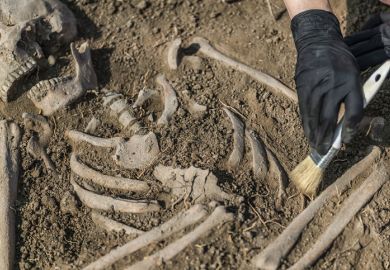Medical anthropology has surely come of age. A descriptive and interpretive interest in "beliefs" about illness and healing was evident in earlier ethnographies of the "medicine, magic and religion" type, and it received further impetus from the practical needs of international public health programmes in the 1950s and 1960s. From marginality, medical anthropology has entered the mainstream of theoretical and methodological debates in anthropology today.
Lest this be thought a runaway success story, Byron Good warns that medical anthropology is not only caught up in anthropology's general crisis of representation but is also torn between the rival epistemologies of biomedical science and local knowledge. Indeed he argues, the term "medical anthropology" is itself "a kind of oxymoron".
If "medical" commonly denotes "a realm of rationality and natural science . . . in which culture is seen as an intrusion into scientific understanding and rational therapeutics", anthropology, conversely, signifies a "fundamentally historicist vision, a conviction that all knowledge is culturally located, relative to historical era and perspective".
How then can the two be made to work together in a way that does not either privilege positivism or neglect the cultural domain of sickness and suffering? Good believes it is possible - and imperative - to find a middle way.
The urgency of this task arises from a conviction that while it is no longer tenable to regard science as merely "a mirror to nature", as if it were culture-free, it is equally unacceptable to take a position which views medicine as just about domination and hegemony. It is "a conversation, a dance, a search for significance, (and) the application of simple techniques that save lives and alleviate pain". It is a commodity "desperately desired and fought for", and he urges all medical anthropologists to "join the struggle for more equitable distribution of health resources and services and for more humane medical practice, even as we pursue critical analyses of medical institutions and abuses of medical power".
In this search for dialogue rather than discourse, and for illness as social object and lived experience, medical anthropology is advised to be responsive to biology, social practice and the diverse signs and meanings that envelop both sufferer and healer. A single understanding of sickness will not suffice.
Good pursues this course in several ways. In an extended critique he rejects both "positivist" and "critical" approaches to the anthropology of medicine, and he questions the adequacy of an approach that presents our understanding of disease and healing as "knowledge" while condescendingly categorising that of other cultures as mere "belief", rightly observing that such a dichotomy cannot provide an adequate basis for investigating disease and healing in cross-cultural perspective.
To prove the point he shows how students at medical school are inducted into a "highly specialized version of reality" and thus how biomedicine is itself an "ideological formation" with its own "cultural language".
In the second half of the book Good presents ethnographic studies of fieldwork in the Middle East and the US that illustrate the impossibility of translating medical terms from one culture to another while jettisoning their local meaning and context.
Drawing on the work of Wolfgang Iser, Good shows how the meaning of illness can be approached through the narratives in which the sufferers, family members, friends and healers seek to explain the origin, nature and hoped-for outcome of an affliction.
Intriguingly, such multi-authored "texts" are not closed, single-stranded works but juxtapose alternative "readings" drawn from different medical and cultural domains. The narratives in turn support Good's plea for heteroglossia, for a medical anthropology of multiple voices and manifold meanings.
Medicine, Rationality, and Experience has an uneven quality about it. The book is based on Good's 1990 Lewis Henry Morgan lectures, but moves uneasily between the original lectures and revised text. The attempt to plot a way forward for medical anthropology is not wholly persuasive, though the discussion of language and narrative representations of illness are among the book's strong points. But it does provide a stimulating commentary on the state of anthropology (not just its medical component) and the dilemmas posed for many of us in trying to bridge the still-yawning gulf between positivism and historicism, between science and culture.
David Arnold is the author of Colonising the Body: State Medicine and Epidemic Disease in Nineteenth Century India.
Medicine, Rationality and Experience: An Anthropological Perspective
Author - Byron J. Good
ISBN - 0 521 41558 6 and 42576 X
Publisher - Cambridge University Press
Price - £35.00 and £12.95
Pages - 242

